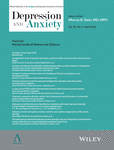Duration of maternal mental health-related outcomes after an infant's death: A retrospective matched cohort study using linkable administrative data
Abstract
Background
Mothers have increased mental illness such as anxiety and depression after the death of a child. We examine the duration of this worsening of mental health.
Methods
The mental health of all mothers who experience the death of an infant (< 1 years old) in Manitoba, Canada between April 1, 1999 and March 31, 2011 (n = 534) is examined in the 4 years leading up to, and the 4 years following, the death of their child. Mental health-related outcomes of these mothers are compared with a matched (3:1) cohort of mothers who did not experience the death of a child (n = 1,602). Three mental health-related outcomes are examined: depression diagnoses, anxiety diagnoses, and use of psychotropic medications.
Results
Compared with mothers who did not experience the death of a child, mothers experiencing this event had higher rates of anxiety diagnoses and psychotropic prescriptions starting 6 months before the death. Elevated rates of anxiety continued for the first year and elevated rates of psychotropic prescriptions continued for 6 months after the death of the child. Mothers who experienced the death of a child had higher rates of depression diagnoses in the year after the death. Relative rates (RR) of depression (RR = 4.94), anxiety (RR = 2.21), and psychotropic medication use (RR = 3.18) were highest in the 6 months after the child's death.
Conclusions
Elevated rates of depression, anxiety, and psychotropic medication use after the death of a child end within 1 year of the child's death.




